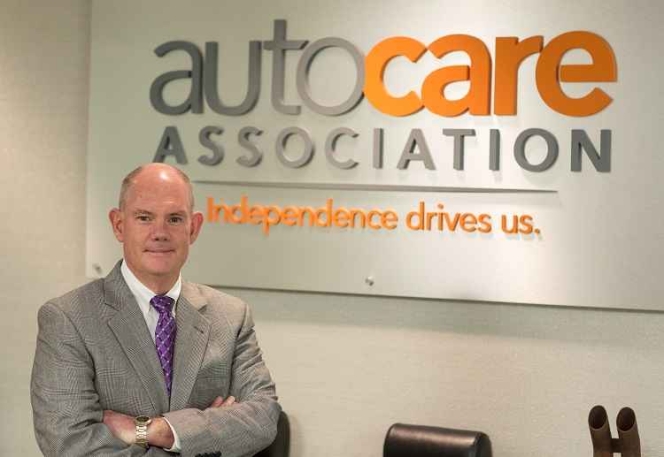
Auto Care Association, the voice of the USD 392 billion auto care industry, provides advocacy, education, networking, market intelligence, technology standards and communication resources to its member companies. The estimated global automotive aftermarket across all vehicle classes is USD 1.77 trillion. The United States accounts for USD 405 billion. It is expected to grow at a CAGR of 3.4 percent and reach USD 448 billion in 2022. This growth will be fuelled by the increase in the miles driven, the average age of vehicles and in the number of vehicles above 12 years which was 43 percent of all light vehicles in 2019.
Challenges keep mounting with the multiplicity of disruptions in the automotive space, and with the OEM technologies that make customers depend on their supply chain, products or preferred service centres. Bill Hanvey, President and CEO of Auto Care Association, told T Murrali in an exclusive interview that “Just as the aftermarket continues to evolve through technology advancements, we will continue to help the industry to go forward. The moment we hear about potential new disruptions, our teams will gear up to get the right information, educate the industry, and work with partners to develop solutions, through standards, training, legislation, data and intelligence.” The excerpts:-

Q: Globally, the automotive industry has been facing several disruptive technologies like the emergence of alternative and autonomous vehicles. How will these influence your members and how will Auto Care Association guide them to deal with the situation?
Hanvey: There have been disruptive technologies in our industry all the way from the key ignition rather than a crank start. Electronic fuel injection was also predicted to be our demise, but guess what, our industry has adapted and thrived with each technological challenge. Currently, ADAS systems, embedded and encrypted software, and telematics are the biggest disruptors on the horizon for our industry. Where some of these technologies differ from those in the past is that many of them require either legislation or regulation in order to standardize repair procedures.
The Auto Care Association has invested heavily on our government affairs and emerging technology teams to meet these and future challenges. We are developing and driving the adoption of the secure vehicle interface to access data cyber-securely utilizing ISO standards and working with industry experts to develop standards to align and repair ADAS systems.
Q: With the popularity of electric vehicles, there will be far-reaching consequences. They will eliminate about 30 percent (in terms of value) of components that go into the traditional vehicles hauled by Internal Combustions engines. This will definitely affect the aftermarket and service centres. How do you see this emerging scenario and what do you think are the ways out for the industry?
Hanvey: While EVs are certainly the wave of the future, they still represent less than 2 percent of the total vehicles in the US. Forecasts for 2030 show less than 5 percent of the VIO will be electric. Most of the changes will be seen in the adaptation of the internal combustion engine such as start-stop technologies and the use of turbochargers and upgraded transmissions to deliver power from smaller-sized engines. The maintenance and repair of true EVs will see a dramatic shift in the way we currently associate car repair and most of these repairs will be on the software updates and will require technicians with completely different skill sets.
Q: How do you see the expansion of the DIY segment with the disruptions in the automotive industry?
Hanvey: No matter the disruptor, there have always been DIYers to find and implement solutions. That’s one of the things I love about this industry – where there are enthusiasts, there’s innovation. And there will always be automotive enthusiasts and people willing to tinker with their vehicles, which is great for us.
Q: The industry you represent has been facing threats from international free trade. Can you explain the current challenges on this front and your plan to interfere in favour of the industry? The automotive industry in the US has also been encountering several challenges on account of wide ranging tariffs and regulatory shifts. What, according to you, is the way out for the industry? Can you share with us your initiatives to resolve these issues?
Hanvey: Our priority is to ensure that the Trump administration does not move forward with the proposed Section 232 Tariffs on imported autos and auto parts. Such action would be disastrous for the US auto care industry. An Auto Care Association study has found that 25 percent tariff on auto parts would result in the loss of over 100,000 US jobs throughout the supply chain. Additional studies assert that the US consumers would pay USD 7,000 more for a new vehicle and their annual cost of ownership would increase by USD 700. We are an active member of the Driving American Jobs coalition, which has been pressurising the administration and Congress to ensure these tariffs never go into effect.
The auto care industry supports efforts to deal with China’s unfair trade practices, particularly related to intellectual property and forced technology transfer; however, China remains a critical trading partner in our global supply chain and the ongoing trade war only harms our members and the US consumers. Our distributor and retail members have already begun to pass the costs of these tariffs to consumers, raising prices and forcing drivers to defer critical safety-related service. Furthermore, while some members have been able to identify alternative suppliers in other countries, certain safety-related products such as aftermarket brake rotors are almost exclusively manufactured in China. Moving production back to the US or to another country is both time and cost-prohibitive. Supply chain decisions must be made with absolute certainty, and currently, given the volatility of our international trade policy, there is none.
The Auto Care Association frequently testifies on the trade issue before Congress and the administration. In addition, we recently welcomed 300 of our members to Washington, D.C. to meet face-to-face with the members of Congress and communicate our industry’s trade positions. Due to widespread industry opposition to the US’ current strategy, our hope is that our ongoing efforts will scale back detrimental trade policies or at least prevent any future tariff increase.
Q: Auto Care Association has set up standards to enable exchange of information. How is it helping your members and the end-users?
Hanvey: ACES (Aftermarket Catalogue Exchange Standard) is compiling an electronic catalogue with high-quality, consistent content about thousands of product-lines possible and efficient. Using ACES, suppliers can describe vehicle configuration with valid database values. Suppliers can define product terminology with a database of product names, all in a computer-readable format, for the exchange of this information from supplier to receiver.
PIES (Product Information Exchange Standard) defines the rules for managing elements of product information, product images, product attributes and also the format of the information and the valid values. With PIES, customers and those in the distribution chain will know what a product looks like, what it weighs, the size of the box and how many are packed inside, the length of the warranty, the country of origin, the performance attributes, and much more.
Together, these standards enable auto care businesses across the globe get the right product, to the right place, at the right time, with predictable results, faster innovation and lower costs. The most widely used standards in North America, ACES and PIES, are now available in Chile and Colombia.
We have also introduced a new product called UniLink that allows you to map a part to a vehicle platform rather than a ‘year-make-model’ enabling you to determine globally what parts fit where and in what country. This significantly reduces product management time and effort for product research around the globe.
Q: How do you see the growth of the US aftermarket vis-à-vis the global aftermarket industry?
Hanvey: We collaborated with Hanover Research this year to estimate the global aftermarket for passenger cars, light-duty, medium-duty and heavy-duty vehicles. The estimated global automotive aftermarket across all vehicle classes is USD 1.77 trillion. With the US representing USD 405 billion and projected to be USD 448 billion in 2022, the US accounts for over 25 percent of the entire world’s aftermarket ecosystem.
Q: What are the initiatives taken by the Auto Care Association to support this growth trend?
Hanvey: Because we know that the industry and the businesses within it are not bound by walls, borders or even class of vehicles, the association expands its benefits and resources to help anyone in the auto care industry to take advantage of these trends:
a) Auto care businesses are looking for data to make better business decisions, particularly, how products are selling compared to the market, identifying shifts in demand, category performance and sales forecasting. In response, we launched Demand Index to help companies know how their products are performing against the market. autocare.org/demandindex
b) Optimizing the supply chain, reducing costs and research time continues to be a need in the industry as well. Many businesses spend countless hours and dollars identifying which of the products they sell fit vehicles worldwide. In response, this year, we debuted UniLink to create those connections. autocare.org/unilink
c) We know that many businesses don’t just dabble in light, medium and heavy duty classes, so we launched Off-Highway and Equipment Data in VCdb to help those businesses sell those parts more efficiently for segments like agriculture, construction, marine, railway, and more.
Q: What is your outlook for the growth of the aftermarket in the next five years?
Hanvey: This USD 405 billion industry in 2019 is expected to grow at a CAGR of 3.4 percent and reach USD 448 billion in 2022. This growth will be fuelled by a gradually increasing number of miles driven, the increasing average age of vehicles and the growth of vehicle population in the 12 year and older category, which represented 43 percent of total light vehicles in 2019. Motorists recognize that vehicles are engineered to last longer and are willing to take advantage of the cost of vehicle maintenance and repair vs the cost of purchasing a new vehicle. Interesting but not surprising to note is that the 5-year forecast of CAGR for most auto care sales show forecast in the high 2 and 3 percent, while electronic shopping is projected at 8.6 percent.
Q: Can you tell us about the ‘Be Car Care Aware’ campaign and how it has evolved since introduction in educating consumers? What are the products in focus now?
Hanvey: The Car Care Council (and its `Be Car Care Aware’ campaign) announced early this year an agreement with the Automotive Industries Association of Canada (AIA Canada) and the Asociación Nacional de Representantes, Importadores y Distribuidores de Refacciones y Accesorios para Automóviles, A.C. (ARIDRA) to create Car Care Council North America to direct the ‘Be Car Care Aware’ consumer education campaign in the US, Canada and Mexico. Car Care Council North America builds on the positive reputation and image of the current Car Care Council that has been funded and directed by the Auto Care Association for nearly 20 years as a credible source of information about the benefits of vehicle maintenance, care and repair. As everyone working in the global auto care industry knows, proper vehicle maintenance is a universal issue and a challenge that has no borders. Expanding the Car Care Council initiatives in Canada and Mexico was a logical next step in educating consumers about the benefits of regular vehicle upkeep.
Q: A Few years ago the 15 year or older vehicles were the fastest growing segment in the US. What is the current status and how has it changed the business for your members?
Hanvey: Evidence of the aging light vehicle continues. Vehicles in the 12+ year old category now comprise 44.3 percent of total light vehicles (up from 32.3 percent in 2009) and is growing at a five-year CAGR of 4 percent.
Q: Could you update on Auto Care Association’s working model of the secure vehicle interface that allows access to the vehicle’s data at a point in the vehicle?
Hanvey: The automakers have pushed back on the aftermarkets need to access vehicle data and state that we need to come up with a safe, secure and standardized method for access to vehicle data. Well - guess what - talk about meeting the tech challenges of our industry today; we had working examples at AAPEX 2019 in the Emerging Technologies booth. There, attendees were able to view a demo of the Secure Vehicle Interface, implementations of recently-approved international standards and how consumers could control to whom their vehicle data was sent.
Q: What is the update on the association approaching OEMs to share telematics data?
Hanvey: Despite attempts to negotiate a settlement by the Auto Care Association and others, no such agreement has been reached to resolve the data access/control issue with the OEMs.
Q: Emulating the tagline, ‘Independence Drives Us,’ your members have been independent and did not rely on the OE to perform vehicle repairs. With lot of disruptions in the automotive space, do you see this as a challenge? If so, what are the initiatives taken by Auto Care Association to mitigate these issues?
Hanvey: It continues to be a challenge as OEMs create technologies that create dependence on their supply chains, products and preferred service centres. But just as the aftermarket has continued to evolve throughout technology advancements, we will continue to help the industry do the same, now and in the future. The moment we hear about potential new disruptors is the moment our teams mobilize to get the right information, educate the industry, and work with partners to develop solutions, whether it’s standards, or training, or legislation, or data and intelligence. This is why we do what we do; we want to allow free competition, choice, and a fair playing field for generations to come. (MT)
- Toyota Kirloskar Sundaram Automotive Solutions
- TSERV Select
- Kirloskar Systems
- Trichur Sundaram Santhanam Family
- TSSF Group
- Toyota Kirloskar Motor
- Rajesh Menon
- Geetanjali Kirloskar
- Srivats Ram
- Tadashi Asazuma
Toyota Kirloskar Sundaram Automotive Solutions Launches TSERV Select Multi-Brand Outlet In Bengaluru
- By MT Bureau
- February 02, 2026
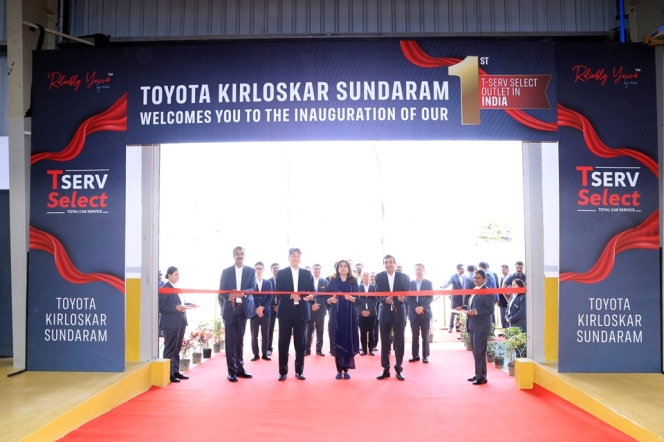
Toyota Kirloskar Sundaram Automotive Solutions has inaugurated its first ‘TSERV Select’ multi-brand service outlet in KR Puram, Bengaluru. The company is a joint venture between Kirloskar Systems, the Trichur Sundaram Santhanam Family (TSSF Group) and Toyota Kirloskar Motor (TKM).
The JV targets the growing demand for organised and transparent vehicle maintenance in India's automotive market. The outlet features diagnostic tools and a workforce trained to provide services for vehicles of all brands.
The company has appointed Rajesh Menon as its President, who comes with over 35 years of experience in the automobile sector. He will oversee the development of a service network intended for various Indian cities.
In addition to the company-owned TSERV Select format, the business operates a network of 150 third-party multi-brand outlets under the ‘TSERV’ trademark. This dual-network approach is designed to increase accessibility while maintaining service standards across different markets.
Geetanjali Kirloskar, Chairperson and Managing Director, Kirloskar Systems, said, “The inauguration of our first service outlet marks an important milestone in building a customer-friendly automotive service platform. As Indian customers increasingly value transparency and trust, our focus is on delivering high-quality and dependable service across vehicle brands.”
Srivats Ram, Director, TSSF Group, said, “The launch of this facility reflects our commitment to making professional vehicle service more accessible and affordable. By addressing the gap between customer expectations and the availability of organized service options, we aim to offer reliable solutions that deliver value across the ownership journey.”
Tadashi Asazuma, Deputy Managing Director, Toyota Kirloskar Motor, said, “The launch of the first TSERV Select outlet marks a significant milestone, reflecting our shared commitment to extending Toyota’s service philosophy through strong and capable local partnerships. As a mobility solutions company, our focus goes beyond vehicles to deliver dependable, end-to-end ownership and service experiences that bring mass happiness to customers. Through disciplined processes, skilled teams, and an unwavering focus on quality, we aim to offer customers a consistent, reliable, and high-standard service experience that builds long-term trust and supports their evolving mobility needs.”
Avis India Introduces Luxury Van Rental Service
- By MT Bureau
- January 28, 2026
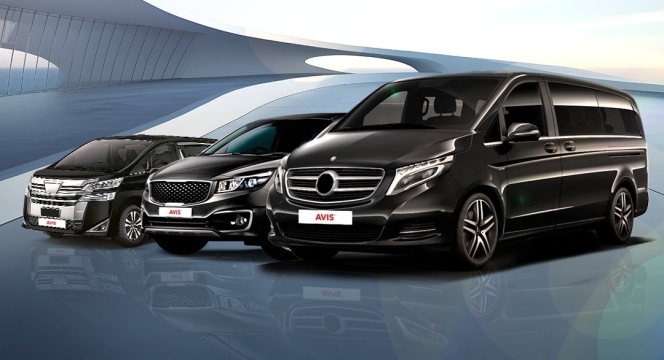
Avis India has announced the launch of Avis Luxury Van Rentals, expanding its mobility portfolio to address demand for group travel. The service is aimed at corporate and leisure segments, providing transport for business leaders, families, and teams.
The fleet consists of vehicles including the Mercedes-Benz V-Class, Toyota Vellfire, Kia Carnival, Toyota Coaster and Toyota Commuter. These models allow customers to select vehicles based on group size, with the capacity to accommodate up to 25 passengers. The service is available for intracity and intercity travel and is operated by English-speaking chauffeurs.
Bookings, confirmations and modifications are managed through an in-house technology platform. This system is supported by a 24x7 contact centre intended to provide assistance to users. The launch extends the company's existing suite of mobility solutions, focusing on service standards and management for group movements.
Aman Naagar, Managing Director, Avis India, said, “Avis Luxury Van Rentals reflects our focus on delivering elevated mobility experiences for customers who value comfort, reliability and professional service. The launch is designed to meet the requirements of evolving group travel in the country, and further strengthens our portfolio. The service is designed to accommodate up to 25 passengers and reinforces our commitment to delivering seamless premium mobility solutions, nationally.”
Carraro India Opens First Authorised Service Centre In Faridabad
- By MT Bureau
- January 23, 2026
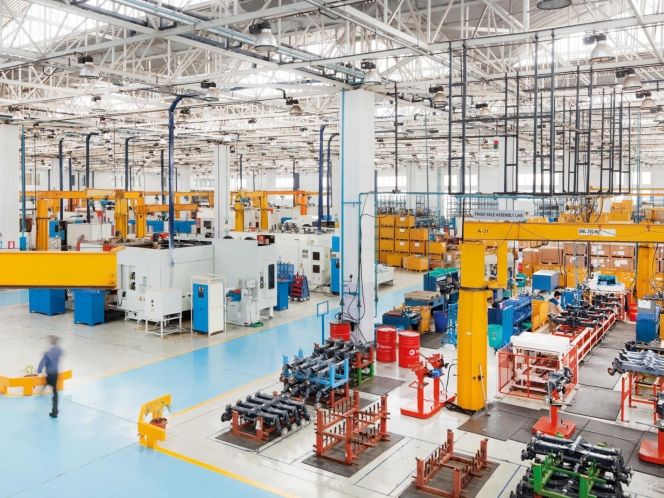
Carraro India, a subsidiary of the Italian group Carraro, has inaugurated its first authorised service centre in Faridabad, Haryana. This facility is the first of four centres the company plans to establish across India by 2026 to support its expansion in the off-highway vehicle market.
The centre is operated in partnership with Balaji Enterprises and will provide maintenance for driveline systems, including axles and transmissions used in agricultural and construction machinery.
The facility is equipped with diagnostic tools and a stock of genuine spare parts to ensure the repair of equipment. It aims to serve customers in Northern India, reducing downtime for fleet operators and farmers. Carraro India currently operates manufacturing plants in Pune and produces driveline solutions for several original equipment manufacturers (OEMs).
The inauguration in Faridabad marks the start of a network growth strategy. Carraro intends to open three additional centres in locations with high concentrations of off-highway equipment. This initiative is designed to move after-sales support closer to the end-user, providing technical assistance and training for local mechanics.
Andrea Conchetto, CEO, Carraro Group, stated, “The opening of our first authorised service centre in Faridabad is a milestone in our journey to enhance customer experience in India. This facility is a testament to our commitment to providing world-class service and support to our customers. We are confident that this centre will set new benchmarks in service excellence”.
S Krishnan, Managing Director, Carraro India, said, “The Faridabad centre is the first of many such facilities we plan to open across the country. Our goal is to ensure that our customers have access to genuine parts and expert service, regardless of their location. This expansion will help us strengthen our presence in the Indian market and provide better value to our customers”.
“We are proud to partner with Carraro India in this initiative. Our team is trained to provide the best-in-class service to Carraro customers. We look forward to a successful partnership and to serving the needs of the off-highway vehicle industry in this region,” added Balaji Enterprises representative.
 - Ravi Kumar
- Ravi KumarMain is opportunity ko lekar bahut interested hoon aur requirement ke hisaab se join karne ke liye ready hoon
Reply
Knorr-Bremse And WESP-Group Launch JV For Commercial Vehicle Data Services
- By MT Bureau
- January 13, 2026
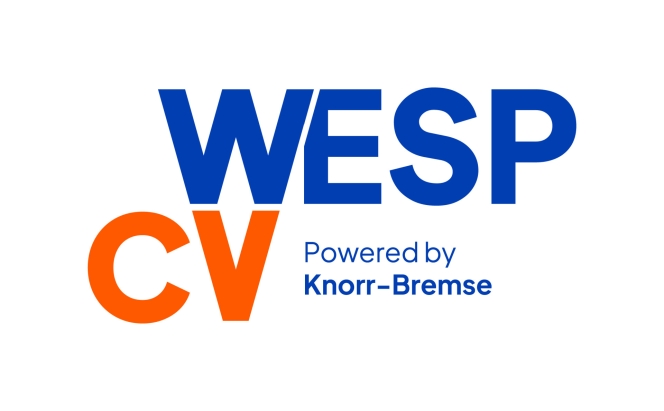
Knorr-Bremse Systeme für Nutzfahrzeuge and Dutch company WAGH (WESP-Group) have established a joint venture, WESP CV, to develop digital services for the commercial vehicle industry.
The new entity headquartered in Germany will see Knorr-Bremse hold 51 percent stake, while WAGH will hold the remaining 49 percent.
WESP CV will focus on data-driven benchmarking for workshops. By comparing performance indicators, the venture aims to help companies identify operational efficiencies and use data to inform business decisions. The database created through this partnership is intended to provide transparency regarding market potential and product field data for workshops, distributors and industry partners.
The partnership seeks to address industry challenges, such as the shortage of skilled staff, by ensuring workshop employees can operate with higher efficiency through predictive maintenance solutions and integrated data ecosystems.
Alexander Wagner, Vice-President Global Aftermarket/TruckServices, Knorr-Bremse Commercial Vehicles, said, "The founding of WESP CV marks the next milestone toward a holistic and efficient commercial vehicle aftermarket ecosystem. The joint venture combines WESP's expertise in digital services for workshops with Knorr-Bremse's expertise in the commercial vehicle market. We want to support commercial vehicle workshops with data-based consulting services, helping them to identify operational efficiency potential, enable data-based decisions, and exploit previously untapped business opportunities or potential for improvement. This extensive database will not only support commercial vehicle workshops, but also other market participants and industry partners in gaining deeper transparency about market potential and product field data.”
Bas Wintjes, Managing Director, WAGH, said, “In the past months, we have consistently aligned our tools with the key KPIs of the truck, trailer and bus market. One thing has become clear: the fundamental principles remain the same – benchmarking against others enables workshops to achieve targeted improvements. In today’s environment, where it is becoming increasingly difficult to find skilled staff, it is more important than ever to ensure that workshop employees can work efficiently. Data-driven predictive maintenance solutions will play a central role in the future. Particularly valuable is the collaboration between manufacturers, distributors, and workshops: a strong data ecosystem gives all stakeholders the opportunity to measurably enhance their performance. The partnership with Knorr-Bremse is an important step in the further internationalization of WESP-Group. We look forward to combining Knorr-Bremse’s market expertise with our proven, practice-oriented tools.”







Comments (0)
ADD COMMENT